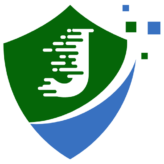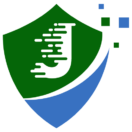Published on: October 10, 2023
Understanding the Vulnerability
The CVE-2024-6885 vulnerability has recently been identified within the MaxiBlocks plugin for WordPress, raising alarm bells across the digital security community. This weakness allows attackers to delete arbitrary files on a server, a perilous capability that can lead to severe data loss and website compromise.
What Does Arbitrary File Deletion Mean?
To comprehend the gravity of this issue, we must first decode the technical jargon. Arbitrary file deletion means that an attacker can potentially remove any file from the web server where the WordPress site is hosted. This could encompass critical configuration files, user data, or even the entire website codebase, leading to catastrophic consequences.
Impact on Users
Websites using the affected version of MaxiBlocks may find themselves vulnerable to exploitation. Should an attacker gain access, they could execute commands to eliminate essential files our websites rely on. For instance, they could delete files that manage user accounts or even wipe clean the entire site. Imagine waking up to find your business website completely offline—an ordeal no business owner wishes to encounter!
How the Vulnerability Works
This vulnerability primarily resides in improper validation protocols that are supposed to restrict file deletion actions to predefined directories and files. Unfortunately, due to the lack of stringent checks, a malicious actor can manipulate the system into removing critical files they shouldn’t have access to. This exploitation typically involves sending crafted requests that trick the plugin into thinking the operation is legitimate.
Preventive Measures
So, what can you do to safeguard your digital assets? Here are some essential steps:
- Update your Plugins: Always ensure your WordPress plugins are up to date. Developers often release patches for identified vulnerabilities, so an update could protect you from such threats.
- Implement Security Plugins: Consider utilizing robust security plugins that provide firewalls and real-time monitoring of your site.
- Regular Backups: Regularly back up your website files and databases. By doing this, if your files are deleted, you can swiftly restore your site to its previous state.
- Limit User Permissions: Restrict file deletion permissions only to trusted users who need such access for their roles.
Conclusion
The CVE-2024-6885 vulnerability serves as a stark reminder of the ever-present threats faced by website owners. In an era where our digital identities and businesses are heavily reliant on online platforms, maintaining robust cyber hygiene is more crucial than ever. Stay informed, stay protected, and ensure that your digital space remains secure from malicious attacks.


